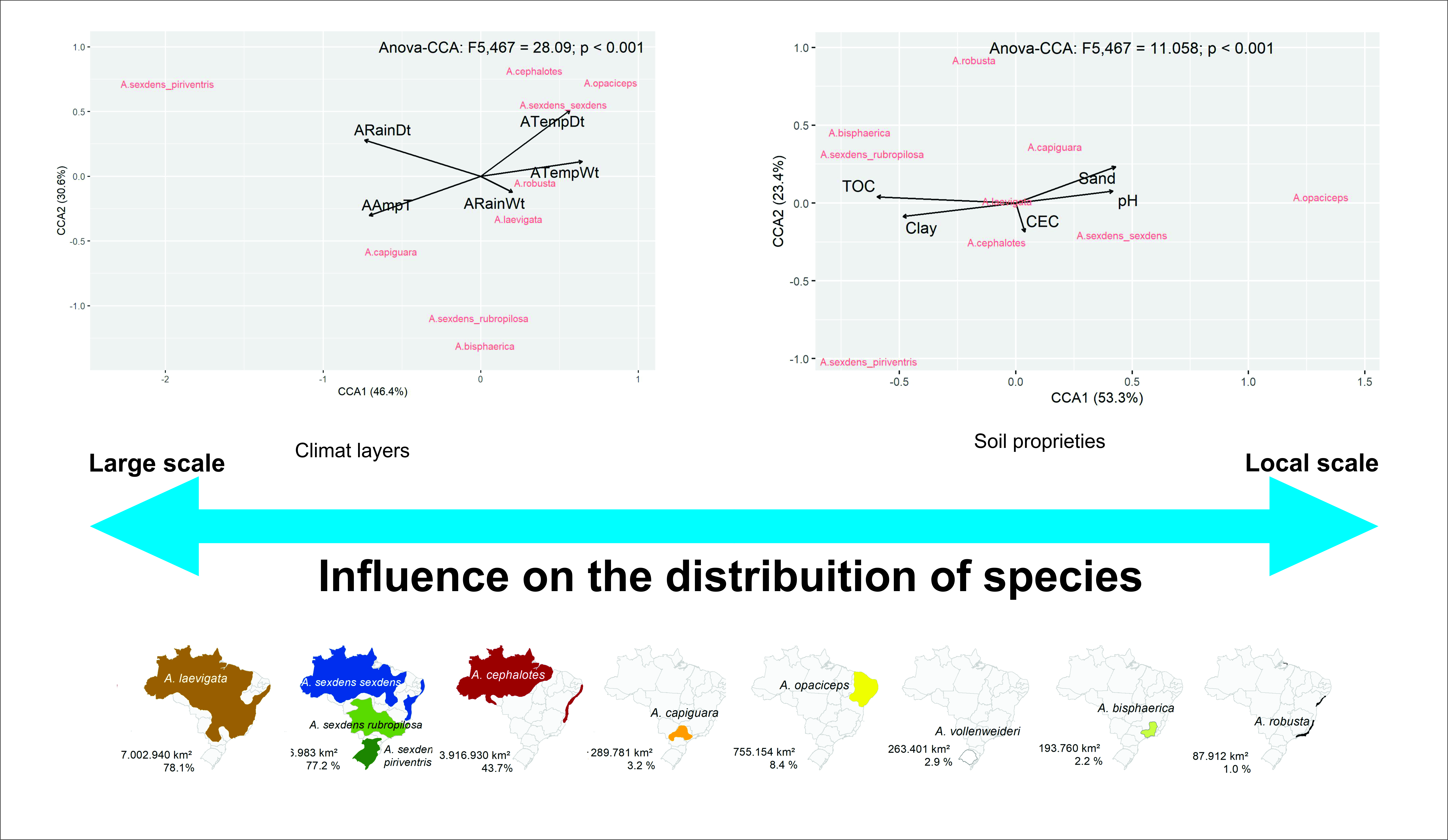Interplays between Atta ants (Formicidae: Attini), soils and environmental properties in the Brazilian Neotropics: a preliminary assessment
30/Nov/2021
ABSTRACT Leaf-cutting ants are the most important herbivore in the neotropics, represent active agents of pedobioturbation, and are regarded as ecosystem engineers. These ants have a wide variety of ecological functions, such as pollination, seed dispersal, and tree-growing control. Despite this importance, little is known on their distribution in relation to possible soil and environmental conditions that affect Atta ants occurrence. This study aimed to spatialize the main occurrences of Atta species in the Brazilian territory and evaluate the main […]
Chemical characteristics of nest refuse of Atta sexdens rubropilosa (Hymenoptera: Formicidae) reared with different substrates
01/Oct/2007
Leaf-cutting ants (Atta spp.) are widely distributed in South America, and are considered to be important components of the neotropical ecosystems. Several studies have demonstrated the effect of ant-nesting in soil enrichment, thus facilitating vegetation succession. Possibly, this enrichment is due to decomposed organic matter concentration after disposal of nest refuse in the deep soil by the colonies. However, little is known about the chemical composition of refuse material produced by leaf-cutting ants. The present work aimed to compare the […]

